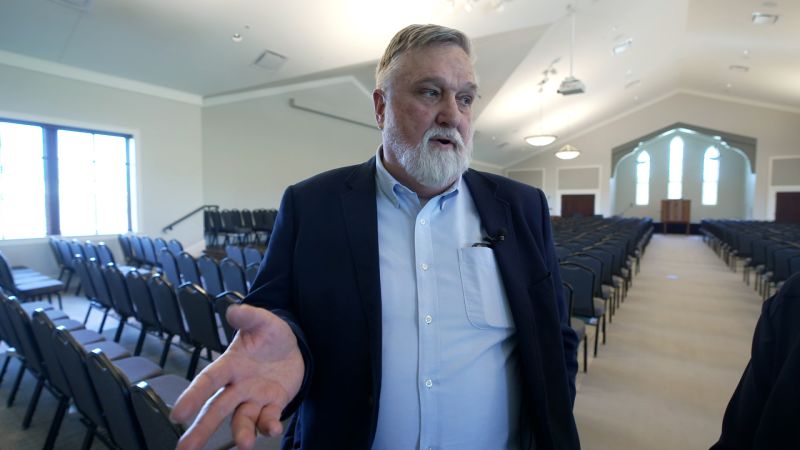Last month, a sizable gathering took place on a Sunday morning above a former bar located three blocks away from the US Capitol, marking the formal opening of Christ Church Washington DC. This church serves as an extension of an Evangelical movement based in Idaho. The church’s inaugural service was held in a building owned by the Conservative Partnership Institute (CPI), which is co-led by Mark Meadows, who previously held the position of chief of staff under President Donald Trump. As attendees settled into the space adorned with exposed brick, pipes, and an American flag prominently displayed above the pastor on the makeshift stage, the atmosphere reflected both a sense of traditionalism and modern political undertones.
Notably, Secretary of Defense Pete Hegseth was present with his family shortly before the service commenced, embodying the connection between this new religious venture and influential political figures. The opening of Christ Church represents a significant milestone for Douglas Wilson, a pastor from Idaho who describes himself as a Christian nationalist. Wilson has been actively building his Evangelical church in Moscow, Idaho, since the 1970s, establishing it into an expansive international network comprising over 150 churches, Christian schools, a college, and a publishing company.
Wilson’s written works and blog posts articulate his belief that the United States should move towards a Christian theocracy, advocating for a societal structure rooted in biblical interpretations. The Washington congregation is a deliberate part of this mission, according to Wilson’s vision. He argues that all societies underpin their governance on the concept of a higher power, stating, “Every society is theocratic. The only question is who’s ‘Theo’? In a Christian republic, it’d be Christ.”
Wilson’s ideologies extend into more controversial realms, including a vision of a patriarchal society where women do not occupy leadership positions within the church and are expected to submit to their husbands. He has also expressed support for repealing the 19th Amendment, which granted women the right to vote, and has proposed that homosexuality should be classified as illegal. His interpretation of societal norms, thus, firmly situates him on the extreme edges of the religious right, yet he has gained traction among Republican circles, particularly during the Trump administration.
His engagement with the Republican base has been amplified by the COVID-19 pandemic, wherein his church and its members defied governmental lockdown orders, leading to arrests and garnering national attention. The church doubled its membership since 2019, in part due to individuals seeking refuge from what they perceived as oppressive restrictions imposed by more liberal states.
As his influence continues to grow, Wilson is regarded as a key figure among a new wave of Christian leaders gaining traction with conservative factions. Matthew Taylor describes this movement as composed of predominantly male leaders who espouse hardline Calvinist beliefs, with Wilson serving as a prominent figurehead.
While critics argue that Wilson’s stance on developing a Christian society could infringe upon the rights of non-Christians and marginalized groups, Wilson remains unapologetic, asserting that his theological principles do not support abuse or authoritarianism. Instead, he believes his approach would foster a more liberated societal framework—albeit one defined by stringent Christian values and norms. His theological viewpoints, controversial as they may be, outline a clear agenda for what he perceives as a brighter, biblically-sanctioned future.
Wilson is unyielding in his vision, emphasizing that the goal of creating a Christian-dominated society is not only achievable but indeed necessary for the second coming of Christ, a landmark he anticipates will come to fruition in approximately 250 years. He intends to influence American society through the propagation of Evangelical beliefs, advocating for a gradual yet determined approach to establishing a thorough Christian identity in governance.
In summary, the establishment of Christ Church Washington DC signifies a strategic effort to embed religious ideologies into the fabric of American society. With figures like Wilson harnessing the momentum from political allies such as Hegseth and intertwined narratives of faith and governance, this development posits potential implications for both religious and political landscapes in the years to come. As the congregation grows and further initiatives materialize, the intersection of Evangelicalism and mainstream politics continues to reshape the dynamic of faith in modern America.











